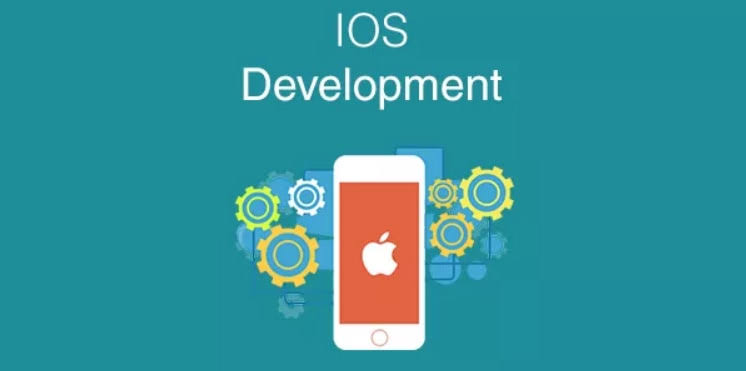Social Bliz is a blogging website that cover wide range of topic from gaming to medical , from gardening to movies and star so do follow us for all kind of daily interesting article related to every topic that attract you as a reader
google-site-verification=QvbdJmURVv79knXnH4TcOtRLzB7_1WnFtP0CCer06rk
Affiliate-Marketing

Affiliate marketing is an advertising technique in which a corporation charges third-party publishers to generate traffic or leads to the firm's products and services. The third-party publishers are affiliates, and the commission rate incentivizes them to discover methods to promote the firm.
Logo Designer

We are Creative Graphic Design services company in Pakistan, delivering sophisticated Corporate Identity Design, Logo Design, Typographic Logo, E-Catalogues, Flash Catalogs in Karachi, Pakistan for onshore and offshore companies looking to build impressive marketing collateral.
Short Story Writer

Short Story writing is an art to describe different thing in the most creative way.
Content Writer

An advertising approach in which a corporation rewards third-party publishers for generating traffic or leads to the firm's products and services is referred to as affiliate marketing. The third-party publishers are affiliates, and the commission rate encourages them to come up with new methods to promote the business.
WireFrame Designer

A wireframe is a two-dimensional representation of a web page's interface that is focused on the allocation and prioritisation of information, the features that are available, and the planned actions. Wireframes are often devoid of any decorative elements such as colour or graphics due to these considerations.
Unity Game Designer

Unity is a software application that allows you to complete a variety of activities linked to the game development process. Unity is a game development framework that allows game creators to construct both 2D and 3D video games. What makes Unity so enticing to developers is that it is easy to use, which means that you don't have to start from scratch every time.
Unity Game Developer

Unity is a software application that allows you to complete a variety of activities linked to the game development process. Unity is a game development framework that allows game creators to construct both 2D and 3D video games.
Article writer and Blog Writer

While there are some similarities between a blog and an article, the most visible distinction is in the writing style and length of each post.
Cartoon Character Designer

Character designers are frequently required to have a bachelor's degree in graphic design, fine art, illustration, or a similar field, but this is not necessarily required. The most important element is that you can display really great sketching abilities. You'll need a portfolio that demonstrates your ability and inventiveness, as well as your extensive understanding of and enthusiasm for animation.
Social Media Management Services

This discipline of social media marketing (SMM) is also referred to as social media marketing management since it involves the planning, writing, and publishing of content on social media platforms. It entails doing frequent social profile audits and audience research, both of which are necessary for distributing appropriate material.
IOS Mobile Application

Consumers demand a new way to access data and information, and to meet that requirement,NextAppVenture Mobile Development Team helps our customers take their information systems from proprietary data source, or web, to the current and next generation mobile Phones.
Mac Applications

At NextAppVenture we create innovative and high quality products to solve complex tasks easily. The key to our success is combining a great team with the best technologies and innovative design.We Create Customized App for Mac User.
Android Development

Android is a software platform and operating system developed by Google for the enhanced development of mobile devices allowing the developers to weave code on JAVA based language that can imply Google-based JAVA libraries.
Website developement

We are known for providing the smart web solutions including the user-friendly and smart web designs that grab the attention of your audience. You need to present your brand as a well reputed brand to the people.
SEO

Our experts are experienced in Search Engine Optimization for more than 15 years of different industries – Ecommerce, Gaming, Education, IT, Finance, Travel, FMCG, Beauty, Health products, etc. We create personalized SEO strategy for your brand and attract more traffic.
Graphic Designing

We are Creative Graphic Design services company in Pakistan, delivering sophisticated Corporate Identity Design, Logo Design, Flash Web Design with Action Script, Flash Brochure, E-Catalogues, Flash Catalogs in Karachi, Pakistan for onshore and offshore companies looking to build impressive marketing collateral.
Word Press

We are one of the best Wordpress Development Company in Karachi having a team of skilled and certified 6+ years experienced WordPress developers with the required working experience on diverse projects. Our team delivers innovative and result-driven WordPress web development services to our global clients.
Pages
-
Can the iPhone connect with iPod Accessories Is it possible to use the iPhone with iPod accessories? A new Apple iPhone u...
-
Why Blogging Matters in the Digital Age: A Guide for Beginners In today’s fast-paced digital world, blogging has emerged as a powerful to...
-
How to Start a Successful Blog: A Step-by-Step Guide In today's digital age, blogging has become more than just a hobby; it's a vi...
-
Productivity Maximizing with different apps Are you using a task management app to stay organized and focused, but struggling to get the m...
-
Understanding Anger Management: Key Information and Strategies Introduction: Anger is a natural human emotion, but when it becomes intens...
-
10 SEO Tips Every Beginner Should Know Search Engine Optimization (SEO) is a crucial skill for anyone looking to improve the visibility of...
-
The Ultimate Guide to SEO Tips for 2024 In today’s digital world, search engine optimization (SEO) plays a critical role in helping busine...
-
Landscape gardening has often been likened to the painting of a picture. Your art-work teacher has doubtless told you that a good picture s...
-
The Latest Gaming Console: A New Era of Gaming The gaming world is buzzing with excitement as the latest gaming console has finally hit t...
-
Introduction to Gardening: A Green Path to Wellness Gardening is more than a hobby; it’s a lifestyle that nurtures the soul and improves t...
My Blog List
Powered by Blogger.
Search This Blog
Contact US
Pages
Total Pageviews
Translate
Contributors
Blog Archive
-
▼
2024
(68)
-
▼
April
(14)
- Unlocking the Power of AdSense: Monetize Your Webs...
- Blogging Brilliance: Your Guide to Launching a Suc...
- Maximizing Productivity with Task Management Apps:...
- 10 Essential Features to Look for in a Task Manage...
- How to Choose the Right Task Management App for Yo...
- Unveiling the Power of iOS Apps: Enhance Your Digi...
- Unlocking the Power of Google AdSense: Transform Y...
- The Ultimate Guide to Fitness Tracker Apps: Your P...
- Creative and Budget-Friendly Baby Shower Centerpie...
- Navigating the Metaverse: A Journey into the Next ...
- Unlocking Tranquility: 7 Benefits of Having a Fish...
- Create Your Dream Backyard Oasis: A Guide to DIY P...
- Unleash Your Creativity: 5 Steps to Craft Compelli...
- Unlocking the Power of Passive Solar Design: A Sus...
-
▼
April
(14)
Copyright ©
SocialBliz | Powered by Blogger










0 comments:
Post a Comment